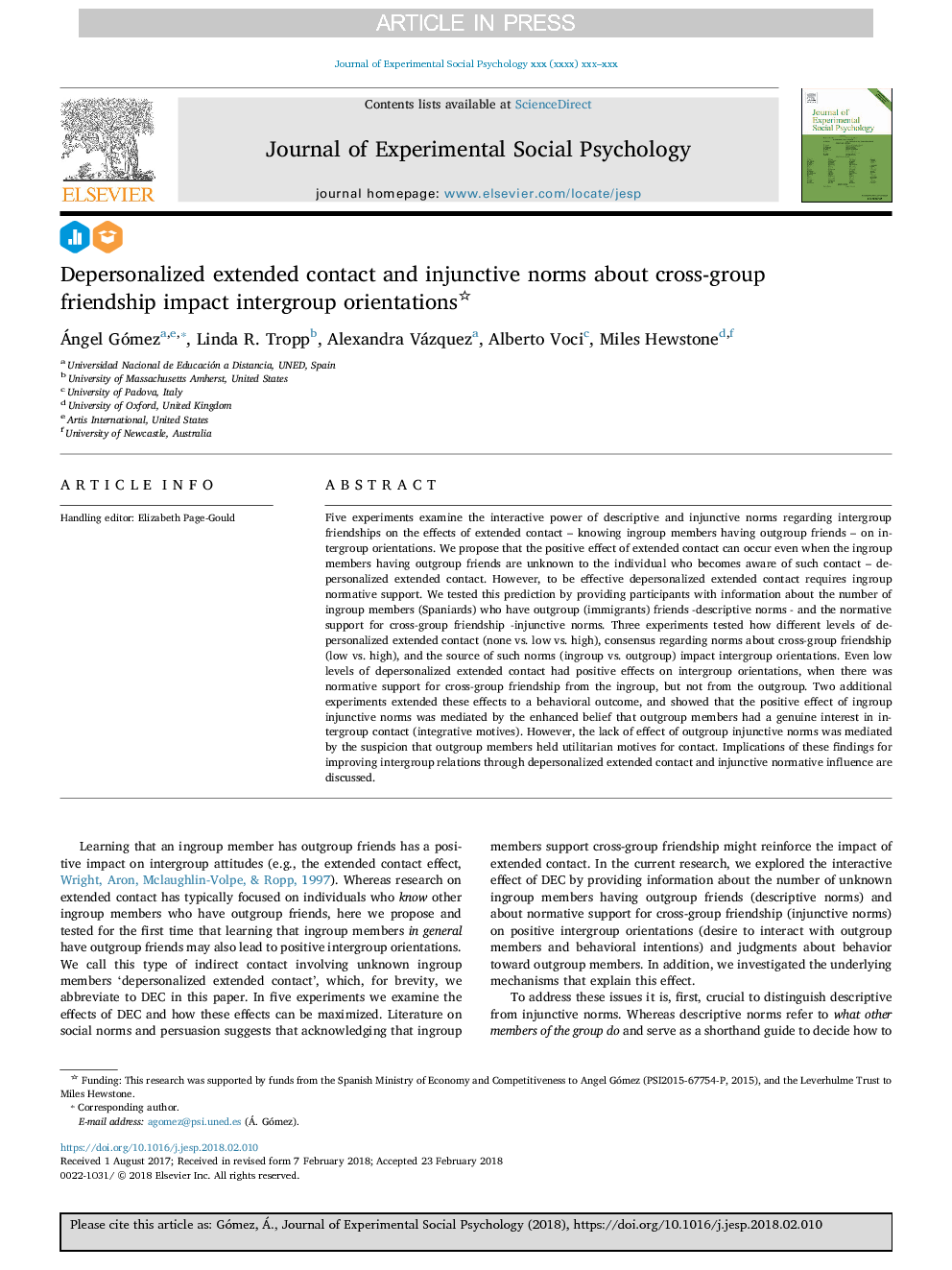ترجمه فارسی عنوان مقاله
تماس های گسترده و شخصیتی غیر انحصاری و هنجارهای پیشنهادی در مورد گروه های میان گروهی در مورد گروه دوستانه
عنوان انگلیسی
Depersonalized extended contact and injunctive norms about cross-group friendship impact intergroup orientations
| کد مقاله | سال انتشار | تعداد صفحات مقاله انگلیسی |
|---|---|---|
| 118407 | 2018 | 15 صفحه PDF |
منبع

Publisher : Elsevier - Science Direct (الزویر - ساینس دایرکت)
Journal : Journal of Experimental Social Psychology, Volume 76, May 2018, Pages 356-370

